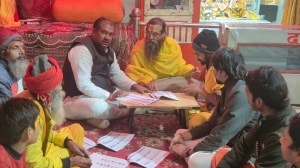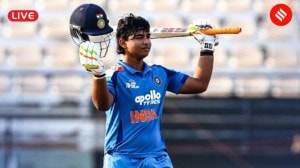Does abuse using caste name constitute an offence under SC/ST Act? This is what Orissa High Court said
In a case dating back to 2017, the Orissa High Court has said abusing a person by their caste name does not amount to an offence under the SC/ST Act unless there is intention to insult or humiliate. How did it arrive at its ruling?
 The Orissa High Court ruling came on March 1 in the case of 'Ajay Pattanaik @ Ajaya Kumar and Another v. State of Odisha and Another'.
The Orissa High Court ruling came on March 1 in the case of 'Ajay Pattanaik @ Ajaya Kumar and Another v. State of Odisha and Another'. Abusing a person by their caste name or suddenly uttering their caste in the course of events will, by itself, not amount to an offence under the Scheduled Caste and Scheduled Tribe (Prevention of Atrocities) Act, 1989, unless an intention to insult or humiliate the victim owing to their caste or tribe identity is “prima facie established”, the Orissa High Court has said. The ruling came on March 1 in the case of ‘Ajay Pattanaik @ Ajaya Kumar and Another v. State of Odisha and Another’.
In doing so, single judge R K Pattanaik set aside an order dated April 13, 2021 passed by a sessions judge Khurda at Bhubaneswar issuing non-bailable warrants for arrest against two accused for offences under Section 3 of the SC/ST Act, which lays down ‘Punishments for offences of atrocities’.
What happened in the present case?
The present case arose from an incident that occurred on the night of April 29, 2017, when one of the parties was heading home after purchasing betel from a shop. It was then that the two accused petitioners along with their associates started abusing the victim in filthy language. One of the victims belonging to a Schedule Caste arrived at the scene and tried to intervene in the fight, only to be “criminally intimidated and abused” by one of the accused who also made disparaging remarks against his caste.
The defense argued that the allegations in the complaint-turned-FIR were false and that no offences under the SC/ST Act were committed. Although the alleged aspersions on caste were directed against a witness and not the victim, even otherwise, there was no intention to insult or intimidate him for being a Scheduled Caste, it was contended.
What did the court decide?
The court set aside the sessions judge’s order to the extent of offences under Sections 3(1)(r)(s) & 3(2)(va) of the SC/ST Act which pertains to punishment for intentionally insulting or intimidating a member of an SC/ST community in any place within public view, and the punishment for the commission of any offence under the Indian Penal Code (IPC) punishable with imprisonment of 10 years or more, against a person or property of the SC/ST person, respectively.
Besides quashing the charges framed under the SC/ST Act, the high court held that other charges framed against the two accused under the IPC, such as causing hurt and criminal intimidation, will not be set aside as “the petitioners and other accused persons did commit the alleged mischief” and even snatched gold and cash of the victims. “Hence, a case is prima facie made out against them for inquiry and trial,” the court said.
How did the court arrive at its ruling?
The court observed that it was in the spur of the moment that the incident happened, in which, the alleged abuse was hurled at the witness, whose caste name was uttered by one of the petitioners. “To claim that it was with an intention to insult or humiliate the witness present at the spot and the alleged offences under the Special Act are committed would be like stretching things too far and unjustified,” the court said in its verdict.
Moreover, the court also took note of the fact that the case had been lodged by a third party or a witness to the incident rather than the victim himself, and hence the offences under the SC/ST Act are not made out, as the person supposedly affected and against whom the caste aspersions were said to be made never complained of it himself.
The court also placed reliance on the Supreme Court’s 2020 ruling in ‘Hitesh Verma vs. State of Uttarakhand and Another’, which held that not every offending remark against a member of the SC/ST community will amount to an offence under the SC/ST Act “unless there is an intention to humiliate… for the reason that the victim belongs to such caste.”
What has Supreme Court said on the issue?
On November 5, 2020, the Supreme Court while hearing an appeal by Uttarakhand resident Hitesh Verma, challenging a High Court order rejecting his plea to quash the chargesheet and summoning orders, said that to constitute an offence under the SC/ST Act, the words spoken must be “in any place within public view”, and not within the four walls of a house and in the absence of any member of the public.
What does ‘in any place within public view’ mean?
The top court elaborated on what can be regarded as “any place within public view” in its 2008 ruling in ‘Swaran Singh & Ors. v. State through Standing Counsel’, where it distinguished the expression “public place” and “in any place within public view”.
The court observed that if an offence is committed outside a building, e.g. on a lawn outside a house, and the lawn can be seen by someone from the road or lane outside the boundary wall, then it falls under the purview of “public view”. On the contrary, if the remark is made inside a building, but some members of the public are there (not merely relatives or friends), then it would not be an offence since it is not in public view.
- 01
- 02
- 03
- 04
- 05






































